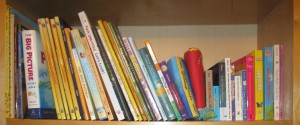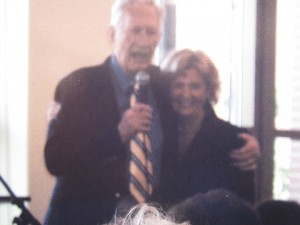Birgitta loves to read. Board books captivated her before she was a year old, and in her preschool years, if we couldn’t find her, she was cuddled up with a book somewhere. She began to read at four and could read almost anything by six.
Words interested her, and she enjoyed putting them together into sentences. Before long she was writing short stories, illustrating them herself, and I have a file cabinet full of these treasures. God gifted her with not only a rich creative side but the desire to use it.
She’s always had a natural interest in words, their definitions, and their pronunciations, looking up the ones she didn’t know. Some of this was inherited from her father, who often read Webster’s Dictionary for pleasure, annotating the margins.
In 40 years of marriage I never asked Nate what a word meant that he didn’t have the correct answer, which included the history of the word, too.
Maybe Birgitta’s love of words came to her through her genes, but she also grew up in a home where reading was a respected pastime and vocabulary questions peppered dinner table conversation.
Hitch-hiking on that love of words and books, her sister Louisa hosted a bring-a-book baby shower for one month old Emerald last weekend. Watching Birgitta open the childhood favorites of 20-some guests was to watch her light up with pleasure at each new title.
Little Emerald now has her very own shelf in the room we lovingly call our library, a prize the value of which she will soon begin to realize. It’ll be Birgitta’s delight to read these stories aloud to her, and surely Emerald will become a book lover just like her mother.
On the other side of our little library is a wall of shelves, part of which is filled with Bibles, commentaries, and biblical reference helps. Since most of my Bible reading and studying is now done online, those hard copies have gathered dust, which makes me feel bad. How many Christians in this world would give anything to have access to such treasure but can’t, either because Christian books are illegal, or expensive, or just hard to find.
But as I look at those dusty books I hear the Lord say, “Margaret, don’t stress about that. As long as you’re drawn to my Word and to Me, the form doesn’t matter.”
So I ask myself, am I enthusiastically gravitating toward Scripture and its Author on a daily basis? Or do I have a take-it-or-leave-it point of view?
Words and books are treasures, with God’s Word, the Bible, the optimum one. Thankfully Emerald’s personal library shelf includes several titles that represent these optimum riches, and hopefully she’ll love to hear their stories, again and again.
“Follow my advice… Always treasure my commands… Guard my instructions… Write them deep within your heart.” (Proverbs 7:1-3)









